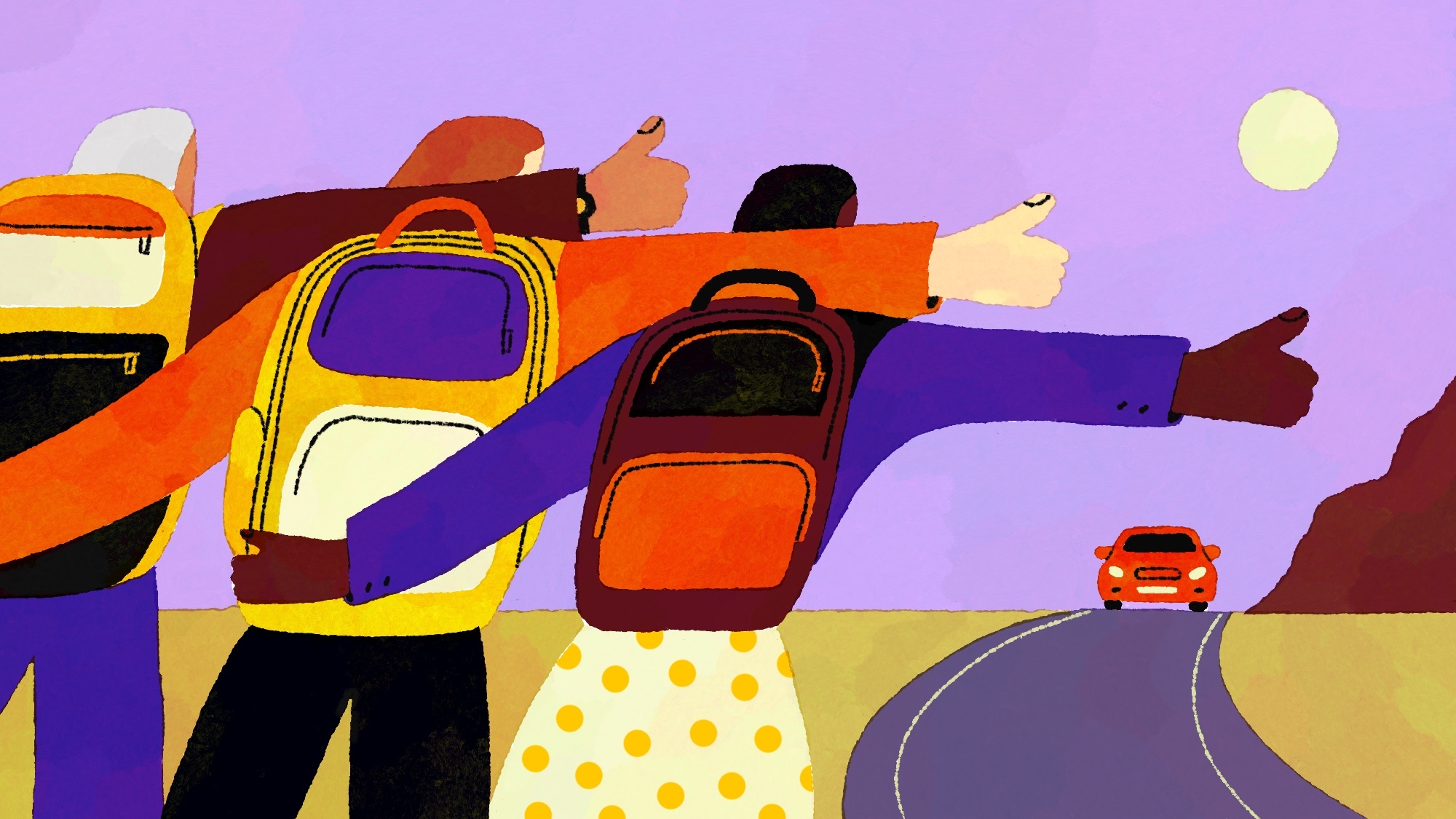
The Most Persuasive ‘People’ on Reddit Were a Front for AI
May 2, 2025
Is Abu Dhabi Bribing the Trump Family?
May 2, 2025This is an edition of the Books Briefing, our editors’ weekly guide to the best in books. Sign up for it here.
When I went outside to read yesterday, the first thing I noticed was the sun on my face. I welcomed it, then wondered, Do I have sunscreen? Then I asked myself if I should have used the bathroom before heading to the park. I made it to a bench and opened my book just as a bold, chittering group of sparrows swooped down from a nearby perch; I watched them jostle one another. Then I set myself to my task: I wanted to make progress on an advance copy of a new memoir, but Michelle de Kretser’s Theory & Practice was also in my bag, and I had Sharon Kay Penman’s When Christ and His Saints Slept loaded on my e-reader—plus I knew I had just a couple of chapters left in Adam Higginbotham’s Midnight in Chernobyl. When I was a few pages into the memoir, a carpenter bee started making lazy laps around me. A leaf drifted onto my head; the light forced me to squint, then dig through my bag for my sunglasses. A cowbird joined the sparrows; the chirping competed with the hum of air-conditioning units. Chapter break: I looked up and a very happy dog was playing fetch in a park specifically marked as not a dog park, and I smiled to myself. A tiny red bug crawled across my phone; boat horns from the nearby Potomac rang out; planes soared overhead. I admired the blooming wisteria, then violently sneezed.
First, here are three new stories from The Atlantic’s Books section:
In the midst of the chattering and barking, the heat prickling my skin and the wind blowing my hair in my face, what did I gain? Certainly not an optimized reading experience. At the office, I could dispel distractions with a quick trip to the bathroom or water-bottle station; automatic curtains would block the bright sun. But I agree with Bekah Waalkes, who wrote for The Atlantic this week that some books just make “a case for leaving your reading nook and getting out into the world.” It’s important to savor pleasant days while they’re here, she notes. Outdoor reading is not always idyllic; I was up against pollen, bugs, and the looming threat of bird poop. But it can be sublime.
And, in fact, the many distractions forced me to marshal my attention. I pushed myself into a unique state of focus, actively choosing each paragraph over everything that was happening around me. Every page I finished was an achievement, and the author’s words floated in my head, on top of the pleasant mix of noises, smells, and breeze. When my mind slipped off the page, I barely cared. My memories of the chapters I read are now tied together with images of the world’s natural rhythms: unfurling irises, creeping spiders, the flowing river—and periodically, an unexpected, uncontrollable sneeze.
Six Books You’ll Want to Read Outdoors
By Bekah Waalkes
Reading has been unfairly maligned as an indoor activity for far too long.
Read the full article.
What to Read
Fish Tales, by Nettie Jones
“You’re not crazy to me,” one character tells the narrator of Fish Tales, a 30-something Black woman named Lewis Jones. “You’re daring. Most people cannot even imagine life the way you live it.” That life includes nights out on the town in 1970s Detroit and disco-fueled Manhattan, copious amounts of cocaine, and sexual encounters both outlandish and, at times, demoralizing. This frenetic novel, first acquired by Toni Morrison and published in 1983, has become something of a cult classic, and it’s easy to understand why: It approaches relationships with raw and unvarnished honesty. A new edition forthcoming from Farrar, Straus and Giroux in April promises to bring additional audiences to Jones’s sharp, fast-paced look at the highs and lows of the human heart. — Rhian Sasseen
From our list: Six older books that deserve to be popular today
Out Next Week
Second Life, by Amanda Hess
Little Bosses Everywhere, by Bridget Read
Old School Indian, by Aaron John Curtis
Your Weekend Read

Does Anyone Still Hitchhike?
By Andrew Fedorov
But I also hitchhike because I love it. The rides I’ve caught across America have opened my sense of the country. Each was an encounter with someone whose perspective I could hardly have imagined, as someone who’s spent much of his life on the East Coast and in politically siloed bubbles. Especially when politics feels intense, hitchhiking has kept me from forgetting that decent people are everywhere. It’s a way of testing the tensile strength of the social safety net. It shows that when you’re at your most vulnerable, whether by circumstance or choice, people will be willing to help. You hitchhike to know you’re not alone.
Read the full article.
When you buy a book using a link in this newsletter, we receive a commission. Thank you for supporting The Atlantic.
Sign up for The Wonder Reader, a Saturday newsletter in which our editors recommend stories to spark your curiosity and fill you with delight.
Explore all of our newsletters.
#Book
Thanks to the Team @ The Atlantic Source link & Great Job Emma Sarappo





